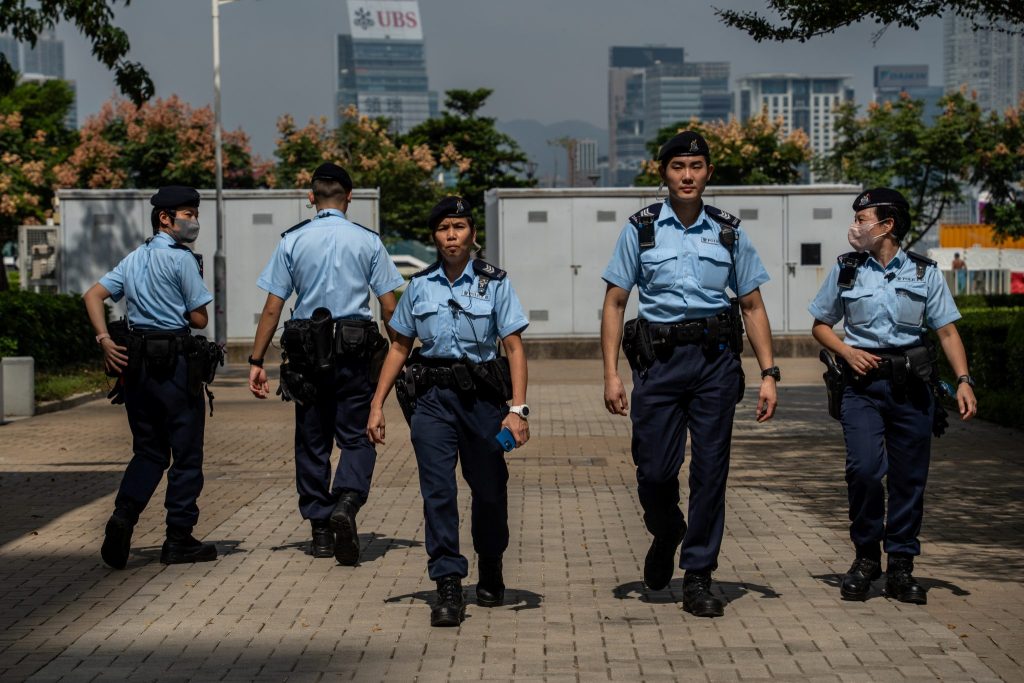In October 2023, Hong Kong Chief Executive John Lee Ka-chiu announced that the government
would table its own local national security legislation, with the China-imposed National Security Law
(NSL) remaining in effect during the process.
The local legislation aims to fulfil Article 23 of the Basic Law, which guarantees the ‘one country, two systems’ framework by prohibiting acts that, in the government’s eyes, threaten the regime security of the Central People’s Government. The legislation allows the government to criminalise activities that have been accepted in Hong Kong for long, such as building ties between local and foreign political organisations or bodies, which might undermine the Central People’s Government. Since Hong Kong’s sovereignty transfer to China in 1997, the government has not succeeded in enacting a law that fulfils Article 23’s requirements. The first attempt at such legislation occurred in 2002 but ended with the government withdrawing the bill after more than 500,000 citizens protested against it.
In 2020, China imposed a national security law on Hong Kong following city-wide protests in 2019 that led to a landslide victory for pro-democracy parties in local elections. Between 2020 and 2023, the NSL’s implementation has cracked down on most of the pro-democracy activists and organisations. The Hong Kong government has weaponised the courts to detain more than 100 leading opposition figures without trial.
The NSL covers four offences — secession, subversion, acts of terrorism and colluding with foreign forces. The offences of secession and subversion overlap with the seven offences outlined in Article 23 of the Basic Law. The local government can potentially address the other five crimes set out in Article 23 — treason, sedition, theft of state secrets, prohibition of foreign political organisations from conducting political activities in Hong Kong and prohibition of local political groups from establishing ties with foreign political organisations or bodies — in the new legislation.
Since the NSL was imposed, local authorities have revived the colonial-era sedition law of the Crimes Ordinance to arrest activists and journalists. There are also pre-existing laws related to offences of treason and theft of state secrets in Hong Kong.
It is very likely that the Article 23 legislation will aim to reorganise and expand pre-existing criminal offences under the umbrella of the local national security legislation. The government could extend the sentences for existing offences like sedition and broaden their applicability to enhance their social and political control.
Another possible reason for the eagerness of the local government to push for the legislation is to align with the Chinese Communist Party’s (CCP) ‘safeguarding national security’ policy agenda in the mainland. As the CCP is eager to incorporate an anti-espionage campaign into the ‘safeguarding national security’ framework, Hong Kong government officials have also repeatedly stressed their intention to incorporate anti-spy measures into the Article 23 legislation.
Religious organisations could be the foremost group affected by the new law. Article 23 of the Basic Law does not clearly define offences related to establishing ties between local political groups and foreign political organisations. There is ambiguity in the meaning of ‘political groups’ and how the Hong Kong government interprets it.
In 2002, when the government introduced the legislative bill of Article 23, religious groups, particularly the Catholic Church and its former bishop of Hong Kong Cardinal Joseph Zen Ze-kiun, raised concerns on whether their ties with the Vatican would constitute an offence. There was apprehension that the Church would be forced to cut ties with the Vatican — like in the mainland — resulting in a loss of their freedom to worship and to have succeeding bishops appointed by the Holy See.
The government’s response in 2002 frightened the religious clergy and believers, pushing them to become core supporters of the anti-Article 23 movement. If the new legislation replicates the vague terms such as ‘political groups’ and ‘establishing ties with foreign political organisations or bodies’ found in the Basic Law, religious organisations are inevitably at risk.
The Chinese authorities have prosecuted underground Catholic prelates in the mainland loyal to the Vatican to implement the policy agenda of ‘sinicisation of religion’. Given the Chinese government’s hostile stance towards foreign religious groups, the Hong Kong government has the incentive to tighten religious freedom to please Beijing.
Global corporations would also be affected by the new legislation. The recent conviction and lengthy jail sentence of a Japanese national on espionage charges shows how overseas companies in the mainland are vulnerable to national security imperatives. The Hong Kong government’s commitment to incorporating anti-espionage offences in the new bill may prompt foreign businesses to draw parallels with the mainland’s history of targeting foreign business groups.
The Hong Kong government has employed many techniques in the NSL to restrict the ability of independent courts to handle national security cases. The presiding judges in such cases are handpicked by the Chief Executive. Jury trials have been eliminated and pre-trial deprivation of liberty has become a norm. The criminal defence counsel is assigned by the government instead of being the choice of the defendants. Following legislation enacted pursuant to an ‘interpretation’ by Beijing of Hong Kong’s constitution, overseas lawyers have almost no chance to represent their clients in national security trials in Hong Kong.
The degradation of judicial independence in Hong Kong has already incentivised many global investors to move their offices elsewhere, like Singapore. The new national security legislation might only further drive international business groups away from recognising Hong Kong as a low-risk hub for investment.
Eric Lai is Research Fellow at Center for Asian Law of Georgetown University Law Center and, a scholar in law, politics and human rights in Hong Kong and China.


In October 2023, Hong Kong's Chief Executive, John Lee Ka-chiu, announced the intention to table a local national security legislation. The new legislation is likely to extend existing criminal offences and incorporate anti-espionage offences, potentially impacting religious organisations, global corporations and the region's judicial independence, as the local government aligns with the Chinese Communist Party's national security agenda.